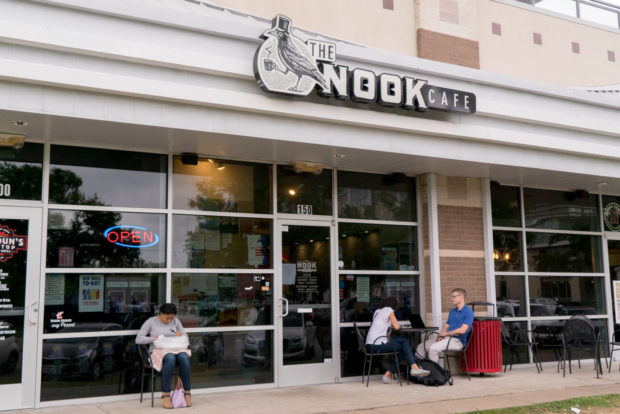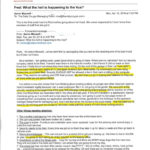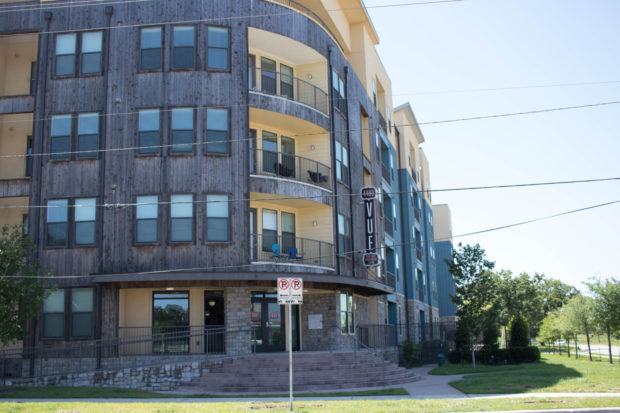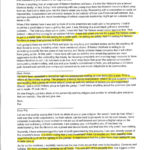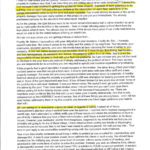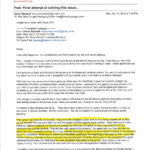Posted on 18 October 2017.


UH Chancellor and President Renu Khator is known for many things, including a history of triumphs for women’s rights and a staunch belief in the power of dreaming big. In an interview with The Cougar, Khator revealed a passion she isn’t so known for — her poetry. | Jennifer Gonzalez/The Cougar
When Chancellor and President Renu Khator was first offered her position by the University of Houston, she turned it down. It wasn’t until after multiple phone calls, visits and some internet sleuthing of her own that she accepted the job.
This week, Khator celebrates her 10 year anniversary as UH president and a decade that has brought cultural, athletic and academic transformation to the University. At her annual fall address at 10 a.m. Wednesday, Khator is expected to reflect on the last decade.
The Cougar sat down with Khator to discuss the challenges that led her to UH, the triumphs she’s seen in during her tenure here, her student-centric plan for advancement and what makes UH so quintessentially “Houston.”
The Cougar: When did you first hear about UH? What drew you to the University of Houston?
Renu Khator: It is to this week that I interviewed with the (Board of Regents) and the Board offered me the job. I had heard of the University of Houston in my own discipline, which is political science. I knew the professors who were here; it’s considered to be one of the top political science departments.
That was about it for me about the University of Houston.
I would say it was probably sometime in February or March of 2007 when I was contacted about this position, and my first response was “No.” I said, “I don’t know about the University of Houston. I’m very happy here.” I was there for 22 years at the University of South Florida. Then eventually, I got a second call, then a couple of people from here who I had met in my previous life called me. So I said, “OK. I promise you I will start looking more,” and I went on Google and started searching about the University of Houston.
I looked at the faculty’s names, I looked at their resumes online, I looked at the national statistics, and then I got intrigued by Houston. I started to learn more and more about Houston — Houston’s economy, Houston’s population, the demographics, the leadership — and I just thought it was a wonderful opportunity.
Two things became absolutely clear: One is the University of Houston was a place where its substance was ahead of its reputation. It had great quality, but it just wasn’t nationally known for it. And second, it became very clear that if you want to really do something, to build a university, Houston has to be it — all the economy, the energy industry, the Texas Medical Center, the port, NASA, so many great institutions.
So, I thought it would be a great challenge to go and build a team and fight for the national competitiveness for the University of Houston. That’s what drew me here.
TC: What has been the most rewarding part of your 10 years here?
Khator: I think the ability to move the needle.
We did a very thorough assessment during my first year. I brought a data analyst with me on a one-year loan from the University of South Florida because I wanted completely impartial, objective information and statistics, and from there we knew what are the pieces that we have to work on and what are the rocks that we have to lift, and we made the strategic plan.
I think it has been absolutely rewarding in 10 years to see that the University’s known as a transformed university locally, but also nationally. I find a lot of gratification when I hear from alumni that “We stand tall — our shoulders tall, head high — and say that I’m a graduate of the University of Houston.”
I think giving that piece of pride, giving that network that comes from pride, I think it’s a significant value. But it’s not from me, obviously. No one person does this. No one effort, no one group, can ever achieve transformation.
It’s really been a great team effort here, and it’s gratifying to see how the city and alumni and the students, the staff, faculty, everybody has worked together for a common goal.
TC: What has been the most challenging part?
Khator: The most challenging part, I would say, has been to change the culture where I felt that we had settled with average or mediocrity — that it is good enough — and for me, average is never good enough.
I think our whole mission is students, because that is why we’re a university. We are not a research institute. We are not a fundraising organization. We are not a charity. We are an institution of learning. Our whole mission is students and trying to change the culture that supports the students — that helps them be successful — has been the primary focus I think and has been the most difficult cultural piece to change.
TC: A number of UH’s many new constructions are all athletics facilities. Between that investment and a recent push to join the Big 12, what is the University’s role in athletics?
Khator: I’m a big believer in athletics, and I’m a big believer in what athletics can do for academics.
Of course, a poor or mediocre athletics program cannot give you what you desire, which is connectivity with alumni and excitement and an identity for the students. When I see in the TDECU Stadium all those students, their pride, it is absolutely just such a happy moment for me — a gratifying moment for me. When you feel pride, when you stand together, identify yourself with a successful team, your chances of staying, your chances of facing barriers, are much higher.
So, the athletics here needed investment.
We have, so far, $1.46 billion worth of investment in the University in facilities. Two hundred and thirty million of that has gone to athletics. So, it is a piece, but it’s definitely not the major piece.
We needed to do for athletics what is necessary so it doesn’t look like a place that is not a place for winners. We have to have a place where the best of the future student-athletes are looking at us and saying, ‘Yes, I want to be part of the University of Houston.’
That requires good facilities, but it also requires a culture of winning. For me, having a good, strong, solid athletics program that supports the academic mission is extremely important.
TC: In the 10 years you’ve been here, UH has shed its image as “Cougar High” and attracted more and more first-time college students to its ever-rising programs. What do you hope the University looks like in 10 more years? Is there a specific campus you’re striving for us to model in certain ways?
Khator: I just think we are the fourth largest city in the United States, and we ought to look at other universities that are in large metropolitan areas.
If you want to see good examples of how the universities have become powerhouses and how they are serving their own cities, you can look at UCLA; you can look at NYU, even though it’s a private school; you can look at the University of Chicago; you can look at the University of Pittsburgh.
These are good models of public universities that are excellent, that are serving the students from diverse backgrounds, and universities that are already the research and innovation hubs.
In the next 10 years, I would like to see our graduation rates way up high, beating all the national averages and way up high so that every student knows if they’re coming here, they’re going to graduate.
Secondly, I want them to know that they are here in Houston where there are so many opportunities for industry, for organizations, so they should leave from here with (more) skills and experience than anywhere else, because, simply, we are located where we are. We have opportunities that other institutions may not have. I want our students to have that benefit.
I want it to be a vibrant campus. I want it to be a campus of learning where people come because they want to be here, but if they want to take courses online, they should be able to. We have exponentially grown our online presence as well.
We want people to be able to reach to us whether they are in Katy or in Sugar Land, whether they are in any part of this Greater Houston, because we are larger — Houston is bigger and larger — than 37 states in the United States of America.
So we are not a city; we are a state. And we need to make sure we are serving the state, giving the students affordable access but giving them also the vibrancy and confidence so they feel they can graduate from here and lead whatever they want to lead.
TC: In the past year alone, actions like fighting off UT-Houston and challenging the South Texas College of Law in a trademark dispute show you want UH to be synonymous with “Houston.” Why is that important?
Khator: The University of Houston has the name ‘Houston’ in it. We are, as I call, the 800-pound gorilla in Houston. Our graduates work here in Houston. Most of the time, they come from here in Houston.
As goes the University of Houston, so goes Houston. I think it’s important for us to take ownership and serve the city so that the city can maximize its potential. We need to do whatever we can for the city.
I think in serving the world, the first thing is you serve your city.
TC: In recent years, many have pushed for universities to take a more active role in preventing and helping survivors of traumatic events, such as sexual assault and suicide. Should UH be addressing these issues? If so, what should we be doing that we’re not already?
Khator: It’s a very serious issue. Every year, I send out a personal message letting people know that we are a zero-tolerance campus when it comes to harassment or any kind of sexual misconduct, encouraging people to report and making that report easy for them.
I also established a blue ribbon commission not too far back, asking the commission to tell me at UH and at all other campuses system-wide, what are the things most needed and what are the things we can do. Every recommendation that’s come from here has been acted on. Even one case is one too many.
However, we just need to make sure that people are properly trained to address these things when they happen, that people who become victims are properly comforted and trained to know where to go for help, and most importantly — and that is most importantly — everyone needs to be aware, be familiar with what is it we need to do to find the signs, to look for them, to identify those and make sure that it does not happen.
You know, I have two daughters of my own, and it’s very important. I can tell you that if any student ever goes through any kind of traumatic experience, it just hurts me personally. I just feel like, “OK, what is it we could have done?”
And most of the time, we end up having a discussion in the cabinet to see what more can we do.
TC: What is the biggest accomplishment the University has made in your time here?
Khator: For me, when people ask me ‘If you can sum it up it up in one sentence, what has been the transformation of the University of Houston?’ I tell them that it’s the ability of our alumni and graduates to stand tall, take pride and say ‘I am a graduate of the University of Houston,’ because that means your education was good here. Your experience was good here. And that means you have a bonding of many, many years here.
If you ask me technically, if there was any one turning point, or one piece, or one initiative that makes me the most proud, I would say it was receiving the chapter of Phi Beta Kappa, and the reason for that is because that chapter is not granted lightly.
A very few institutions have it, and getting it means the institution successfully has transformed the student experience and the student academic success here at the University of Houston. They look at everything — everything. They look at the learning experience, the classroom experience. They look at the outside-of-the-classroom experience. They look at facilities. They look at athletics. They look at engagement.
I mean, it is a very extensive process, and to get that is almost like getting the biggest seal of approval that the institution is ready to serve its students.
There are many more things we have to do, and there are many more things we will continue to do. I think the most important thing is: Do you have culture? Do you take ownership of the student’s journey?
And I believe getting that chapter tells us that we are at the right place.
TC: What is something students probably don’t know about you?
Khator: I think they all know I come from India. I think they all know I came here as a teenager as an arranged marriage. I think they all know all of that. They probably don’t know that I write poetry, and I write fiction, and publish it in India in my own native tongue, which is Hindi.
I have some pieces, one piece actually, that has been translated here and published in English. It’s a piece on my mother — a tribute to my mother. So, I wrote that in Hindi first because I just feel that I express a lot better in Hindi, I feel, than in English, because it’s my mother tongue.
I was writing when I was 15 years old — it was the first time that I had published poetry and since that time, I have just kept with writing poetry or fiction.
news@thedailycougar.com
—
“Q&A: Khator celebrates ten years, triumphs at UH” was originally posted on The Daily Cougar



